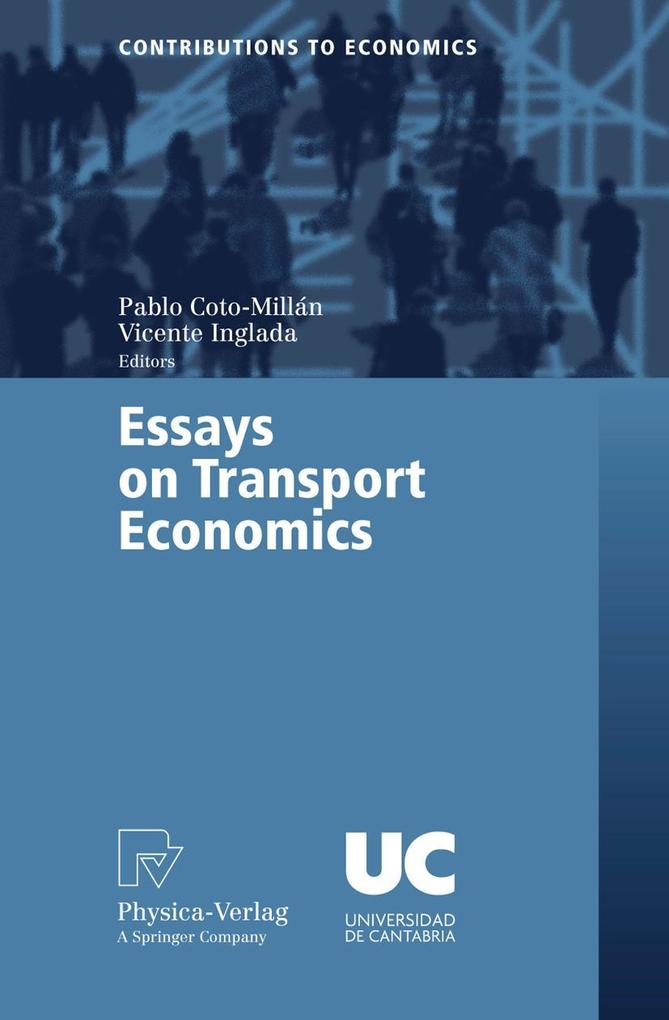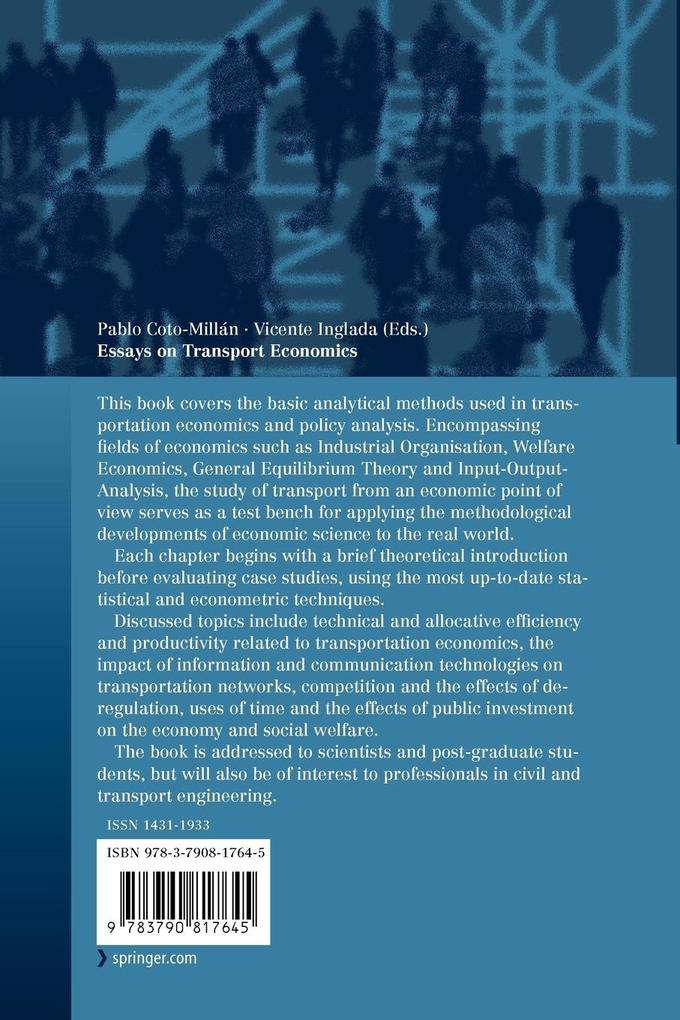An analysis of the history of economic thought reveals that transport and econ- ics have always gone hand-in-hand. Many methodological developments in e- nomic theory have emerged from the sphere of transport; Jules Dupuit (1849) and Arthur C. Pigou (1912), for example, proposed price setting in transport inf- structures, particularly on congested roads. This issue is referred to in economic literature as optimum price setting and is still the subject of much attention even today. It is difficult to imagine how the transcendental change in economic dev- opment brought about by the industrial revolution would have occurred without the invention of the railway. Today's "new economics", which is for some an - novative concept in economic science, is also closely linked to transport. However, not only is transport present in the entire economic tissue, it is also a key element in individual behaviour, revealed in decisions about work, place of residence and location of companies, among others. One characteristic of transport is that it is a service that can also be used as an intermediary factor in the production process or form part of final household c- sumption. Studies on this sector therefore have a number of dimensions. As it encompasses a number of branches of economic theory, the study of transport from an economic point of view is an ideal test bench for applying the methodological developments of economic science to the real world.
Inhaltsverzeichnis
Demand. - A Reassessment of the Characterisation of Congestion on an Urban Road Network Some Theoretical Suggestions and Illustrative Experiments. - Estimation of the Economic Value of Student Urban Travel Time. - Price and Income Elasticities for Intercity Public Transport in Spain. - Supply and Efficiency. - Classifying Urban Passenger Transportation Services. - Analysis of the Allocative Efficiency in Public Firms: the Case of Railway. - The Effect of Using Aggregated Output in the Economic Analysis of Cargo Handling Operations. - Scale Economies, Elasticities of Substitution and Behaviour of the Railway Transport Costs in Spain. - Efficiency Stochastic Frontiers: a Panel Data Analysis for Spanish Airports (1992 1994). - Multi-Output Analysis of the Costs and Productivity of Cargo Handling in Spanish Ports. - Market and Economic Impact Studies. - Economic Impact Study: Application to Ports. - Airport Management and Airline Competition in OECD Markets. - Dynamising Economic Impact Studies: the Case of the Port of Seville. - Valuation of Benefits and Costs. - Estimating the Economic Benefits of Bicycling and Bicycle Facilities: an Interpretive Review and Proposed Methods. - Valuation of Transport Externalities by Stated Choice Methods. - Externalities Analysis of Investments in Infrastructure: a Practical Approach. - Transportation Network and Information and Communications Technology. - ITS-Based Transport Concepts and Location Preference: Will ITS Change `Business as Usual ? . - The Economics of Transportation Network Growth. - Transport Network Development and the Location of Economic Activity. - Mapping the Terrain of Information and Communications Technology (ICT) and Household Travel.





































